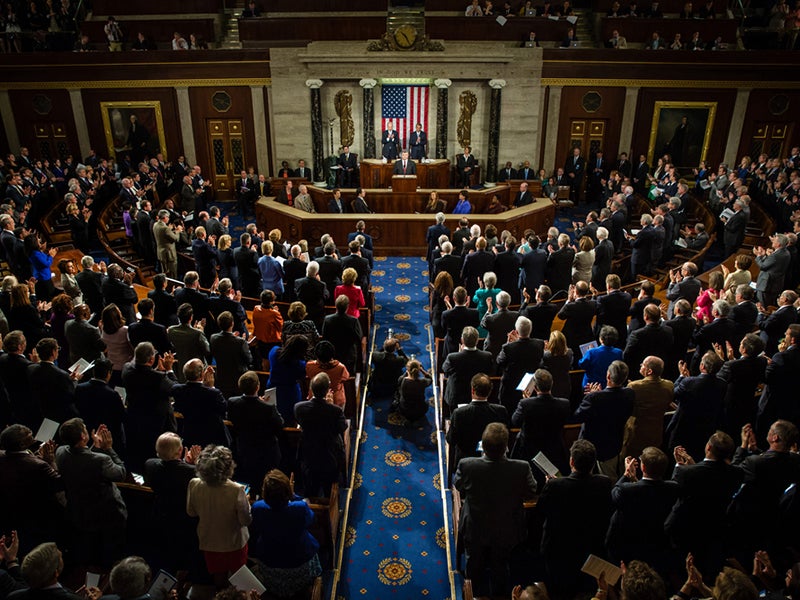Congress: Fund Our Government Without Clogging Our Lungs
We don’t have to sacrifice clean air to keep the government funded—no matter what pro-polluter politicians say.

This page was published 8 years ago. Find the latest on Earthjustice’s work.
By December 11, the U.S. Congress must pass a spending bill to keep the lights on. Otherwise, our federal government will shut down. Sounds straightforward, right?
Unfortunately, pro-polluter politicians are hoping to add “ideological riders,” or provisions that limit environmental and public health protections, to this must-pass spending bill. One such rider would stop the U.S. Environmental Protection Agency from implementing their update to national air quality standards for ozone pollution. Ground-level ozone, commonly called smog, is one of the six pollutants the Clean Air Act has designated for national exposure limits in order to protect human health.
In October 2015, the EPA finalized overdue updates to smog pollution limits, lowering the threshold from 75 parts per billion (ppb) to 70 ppb. While environmental and public health advocates wish the new standard was stronger, we know it’s still important that the new limit be implemented so folks know how safe their local air is to breathe.
Tying government funding to blocking an updated smog standard is an insult to the four in 10 Americans who live in areas that earned an “F” rating for ozone pollution in the American Lung Association’s annual State of the Air Report. That’s roughly 128 million people, more people than live in the entire country of Mexico.
Asthma attacks are also on the rise in the U.S. While we don’t know the definitive origins of the increased rates of asthma, we do know that smog and dirty air can trigger asthma attacks. According to the American Academy of Allergy, Asthma and Immunology, one in 10 children suffers from asthma. For black children, the rate increases to one in six, the highest rate among all children.
The fact that some in Congress are comfortable gambling with people’s health to score political points is unacceptable. Children, the elderly and those who work and exercise outdoors are incredibly vulnerable to adverse health impacts from smog pollution. Their lungs shouldn’t be used as pawns in a high-stakes round of political gamesmanship.
This blog was first published on The Hill on November 23, 2015.
Stephanie Maddin worked on Capitol Hill with the Policy & Legislation team from 2010–2016. She lobbied on air pollution issues to ensure that all Americans enjoy the full promise of the Clean Air Act.
Established in 1989, Earthjustice's Policy & Legislation team works with champions in Congress to craft legislation that supports and extends our legal gains.
